Tilga Art Fund supported resident, Katesi Kalange spent her time in Lagos investigating the possibility of integrating non-biodegradable materials into urban building landscapes. During her residency, she transitioned from research and theoretical exploration to ambitious practical fieldwork on and off-site at G.A.S Lagos.
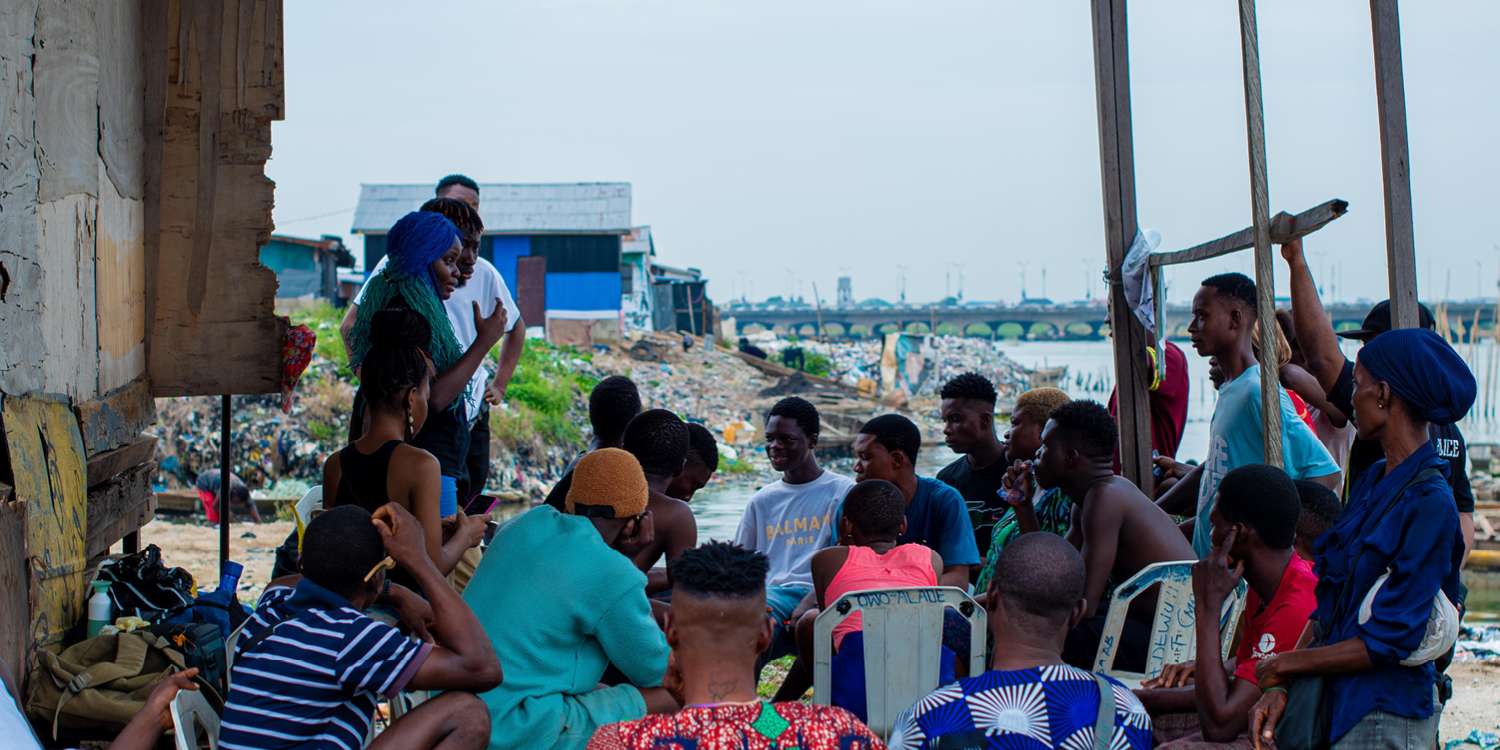
Katesi Kalange's initial workshop with members of the Bariga community during her Community Cleaning Drive
Guided by insights from local artist, community organiser, and collaborator, Peter D. Abayomi, a native of the Bariga community, she facilitated a community cleaning drive that began with a mini-workshop with 15 enthusiastic young adults from the Bariga community. The participants, guided by Katesi, were invited to collectively rethink the lens through which they viewed materiality in relation to their immediate environment. Like many urban areas in Lagos, Bariga grapples with challenges in waste management. Sprawling from atop a designated landfill, the community contends with a steady influx of non-biodegradable waste, such as single-use plastics, second-hand clothes, hair extensions, flip flops and electronic waste, amongst others.
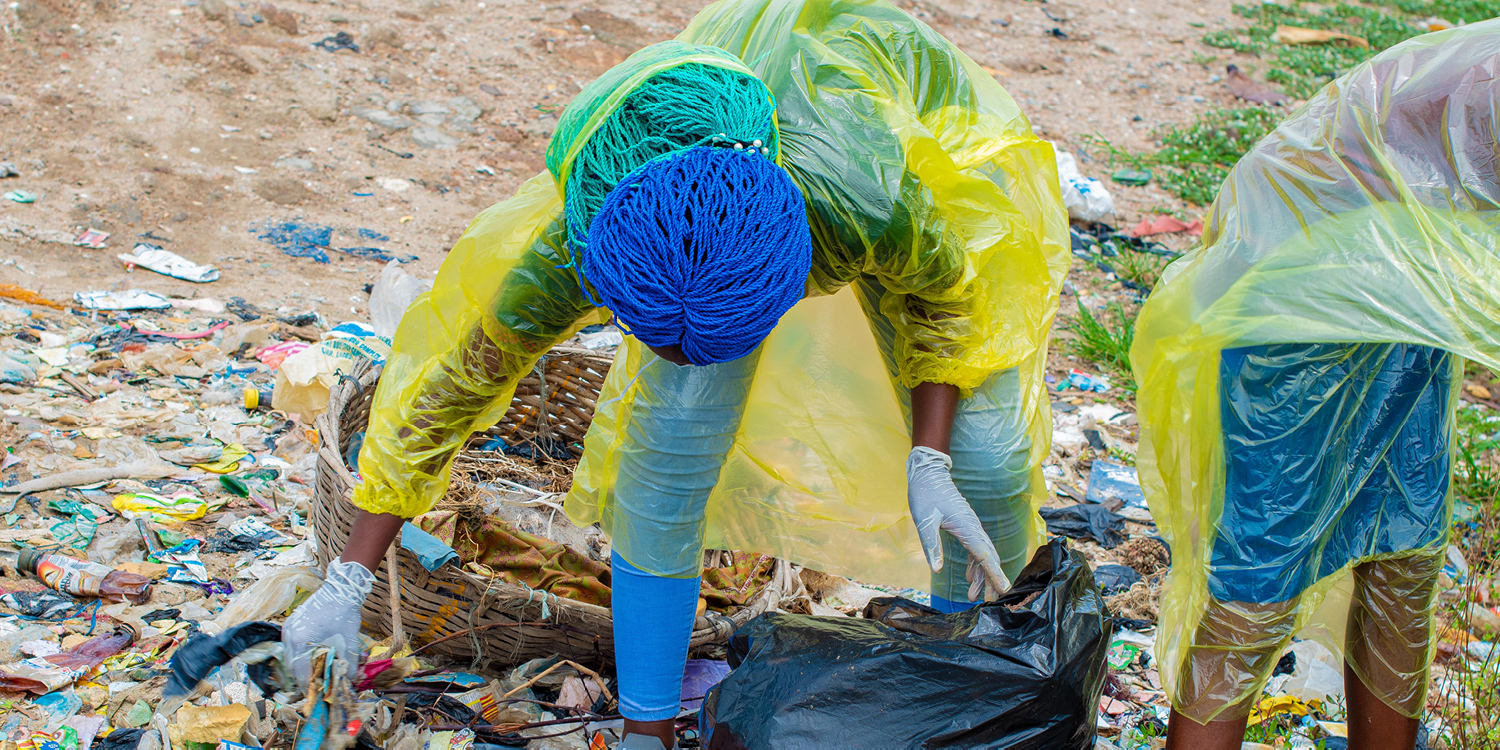
Katesi collecting waste during the Community Cleaning Drive
Recognising the potential of this site for material generation, the small-scale community clean-up was conceived by Katesi as a means of addressing the sanitation and materiality issues plaguing the area. Despite encountering challenges unique to the city of Lagos, including informal tax, and the city's specific relationship with the concept of "public space", the exercise came to a fruitful end. The collected waste was sent to a cleaning station in the landfill, where members of the community engaged in collecting and reselling waste items such as plastic bottles and fabrics.
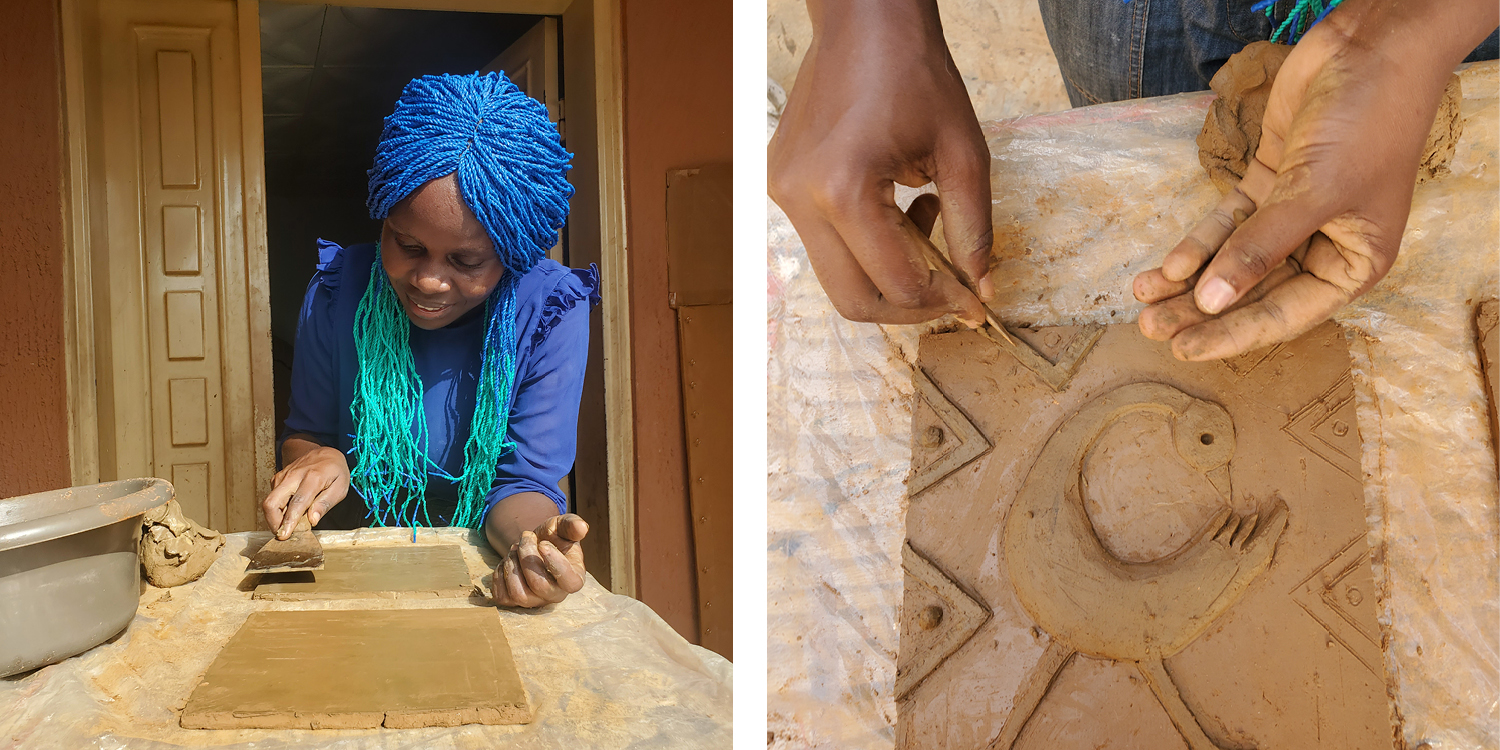
Katesi sculpting tile prototypes in clay.
At the cleaning station in the landfill, waste items undergo meticulous cleansing in preparation for repurposing. 50 kilograms of the waste materials went on to find new life in the art studios of Ayobo, a suburb bordering Ogun state, where Katesi embarked on the next phase of her residency. Engaging with a network of artists that she connected with alongside her fellow resident, glassmaker and sculptor, Graeme Spencer Smith, Katesi soon began regularly commuting to the Lagos mainland, where she conducted material experiments in collaboration with Lagos-based sculptors Adeoti Afeez, Henry Unuigboje, Mr. Ato Arinze and his apprentices.
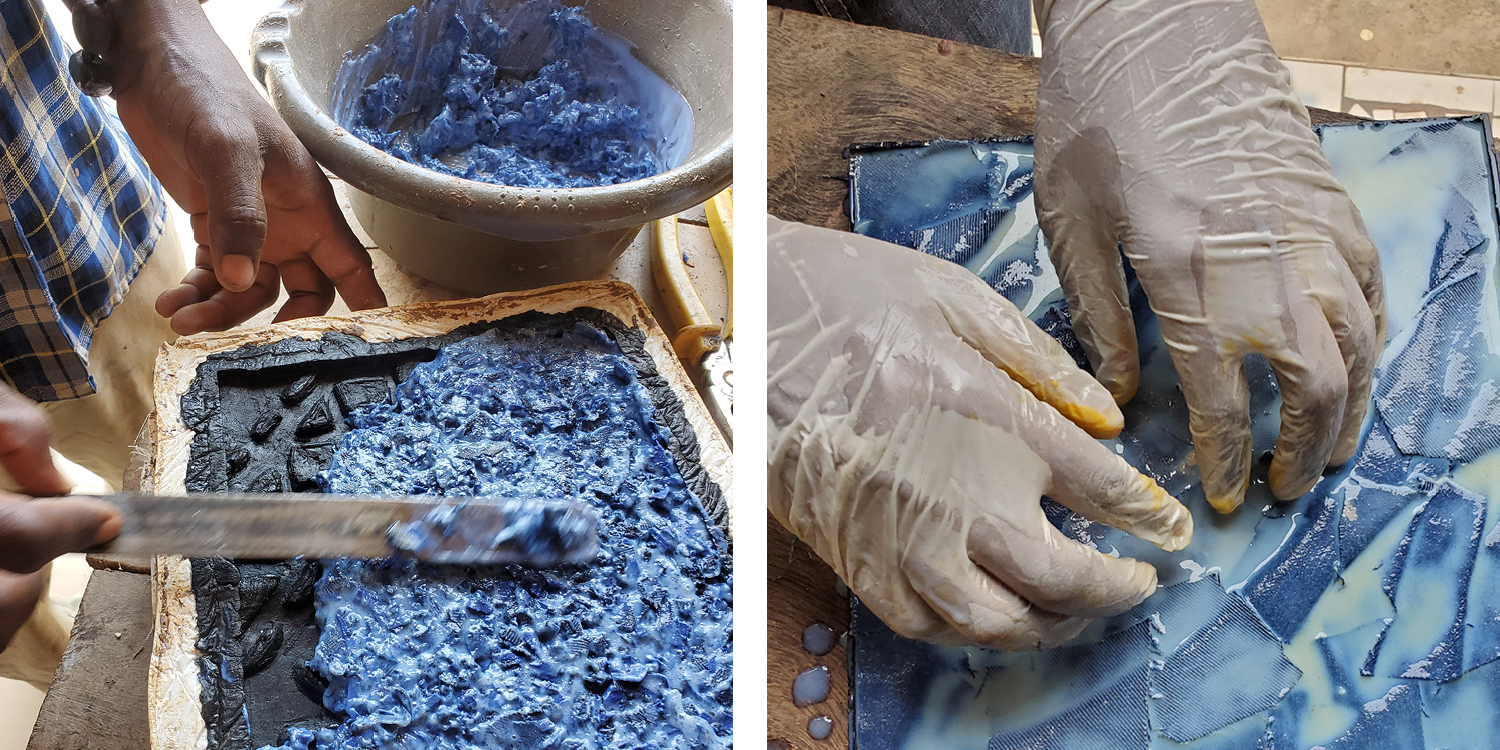 Denim fabrics and acrylic gel mixes are poured in moulds during the trial stage.
Denim fabrics and acrylic gel mixes are poured in moulds during the trial stage.
The research involved studying the physical and chemical properties of the processed waste products and conducting experiments that involved combining them with materials such as silicone, plaster of Paris, sisal fibre, palm oil, raw clay, shredded denim, sawdust, crushed fired clay and acrylic gel to create a series of prototypes for floor tiles. At this stage, faced with the challenge of bulk material sourcing, and mass production of her tiles, Katesi connected with WeCyclers - a Lagos-based social enterprise that provides recycling services in the city, and BASF - a socially conscious chemical engineering company. Both companies generously extended to her, the use of their facilities and resources, as well as consulted with her on best practices in recycling and material engineering for single-use plastics. This exchange culminated in the production of a batch of around twenty tiles made from recycled polyethylene and glass.
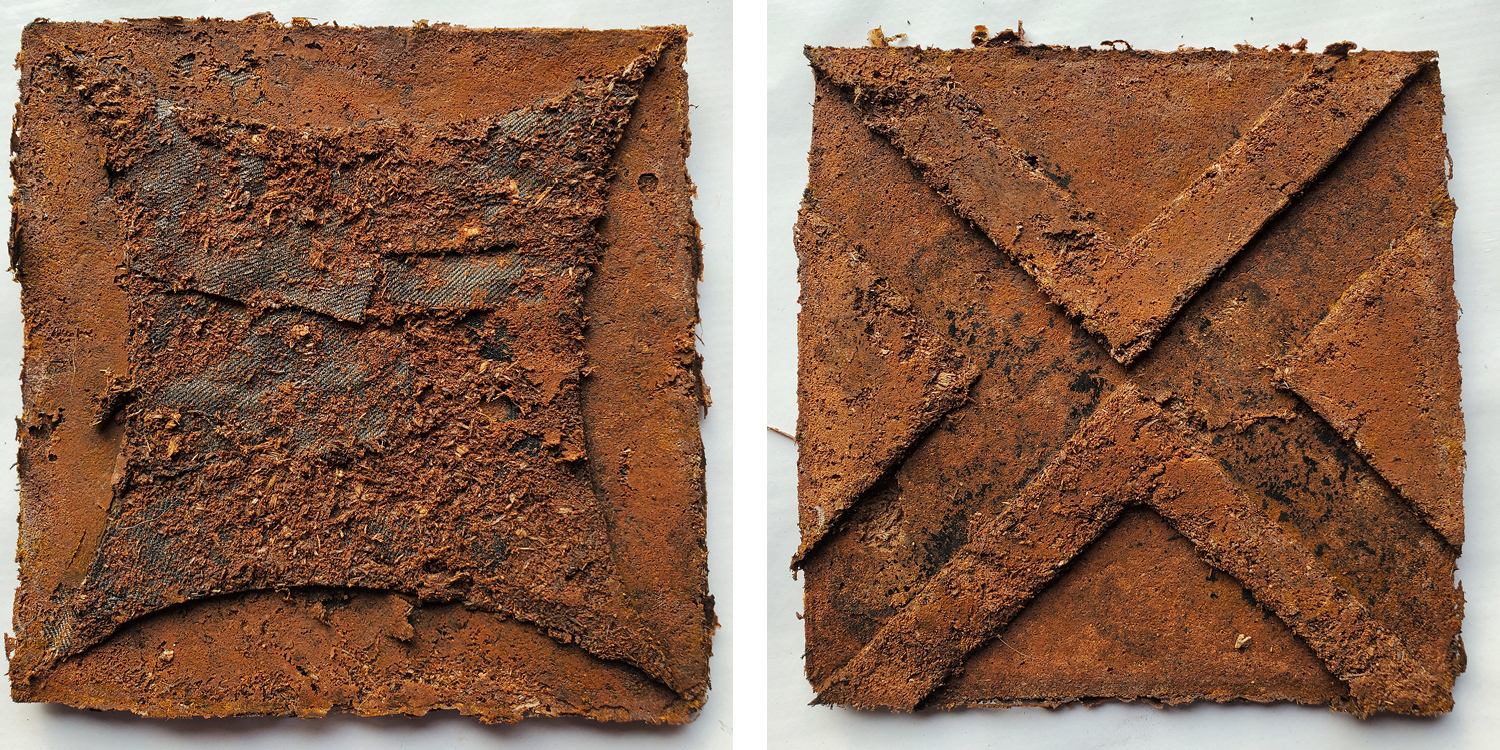 Tiles made with grog, sawdust, denim pieces and acrylic gel.
Tiles made with grog, sawdust, denim pieces and acrylic gel.
This particular body of research follows on from her 2023 residency at the Nubuke Foundation, Ghana, where she developed an alternative building material, applying hand-smeared clay onto denim fabrics attached to a biomimetic web-shaped steel reinforcement. Throughout her practice she has continued to experiment with material and stylistic possibilities in other communities and spaces, extending to Uganda and now, Nigeria.
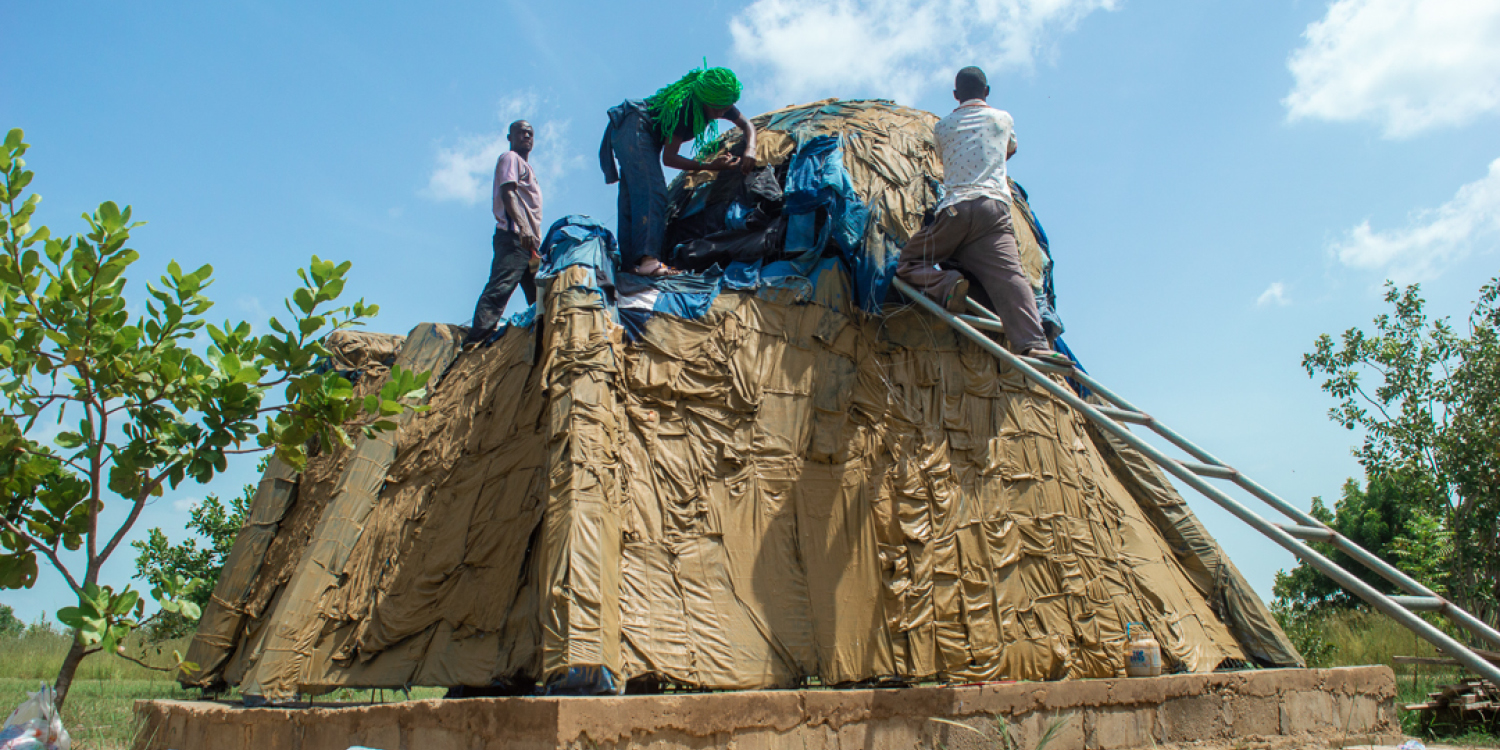 Katesi Kalange 's monumental sculpture in Ghana under construction. The construction utilizes discarded denim saturated in clay, hung over a structural steel frame
Katesi Kalange 's monumental sculpture in Ghana under construction. The construction utilizes discarded denim saturated in clay, hung over a structural steel frame
Towards the end of her residency, and as a sequel to her cleaning drive with the community of Bariga, Katesi reconvened its members for a workshop sharing her techniques and processes and presented an installation of the upcycled floor tiles with the help of attendees. The event was an opportunity for her to build upon a relationship established early in the residency with Peter D. Abayomi. The workshop was hosted adjacent to a landfill, where many in the community find their livelihood sorting waste which they trade to recycling companies. The attendees had helped to collect substantial amounts of recyclable materials which Katesi reformulated into her floor tiles.
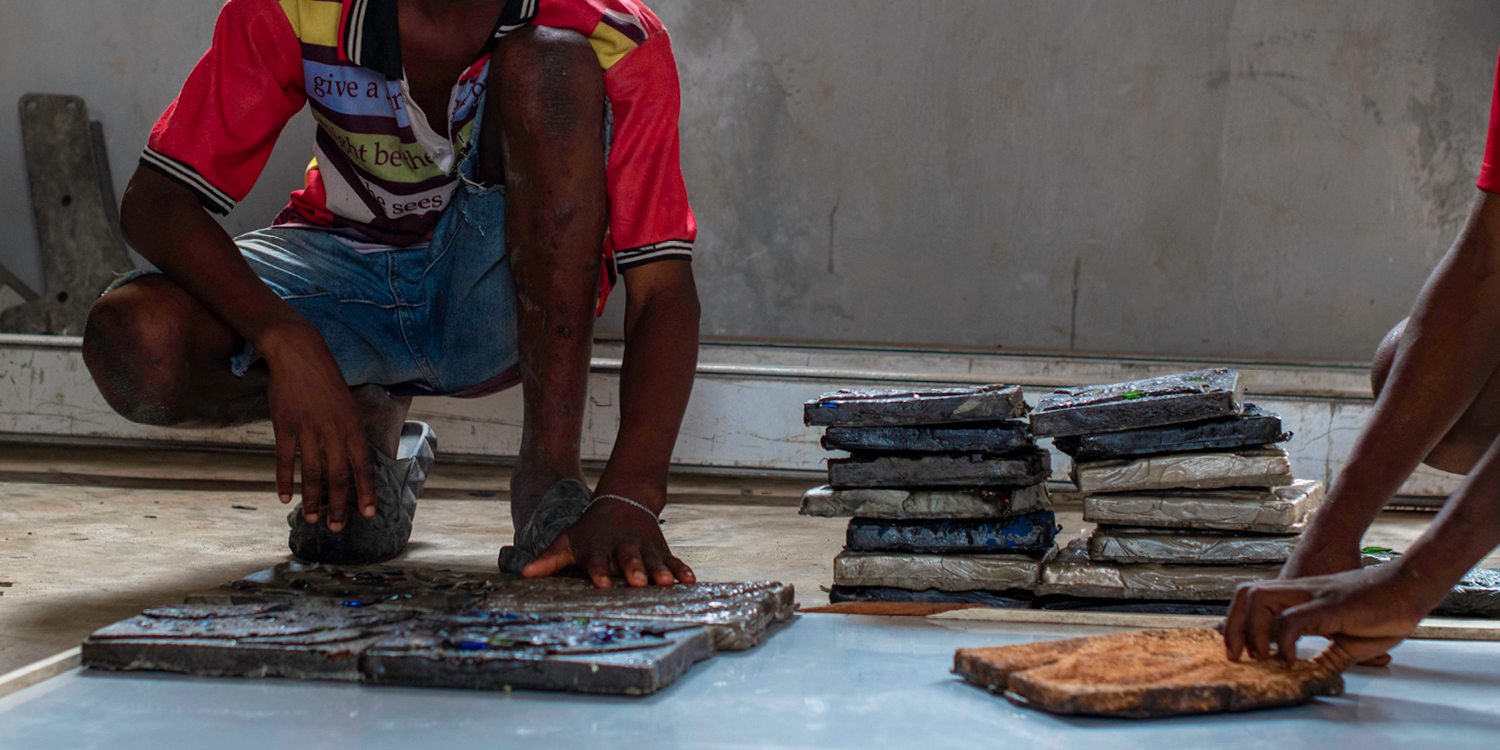
Katesi Kalange demonstrates the installation of her finished tiles with attendees at the Second workshop in Bariga.
The mass fabrication of the tiles proved to be one of the biggest hurdles of the residency. To mitigate the challenge, Katesi established partnerships with Wecyclers and BASF West Africa to assist with production. The former is a for-profit social enterprise that provides recycling services in densely populated urban neighbourhoods, whilst the latter creates chemical engineering solutions for a sustainable future. Both organisations supported her work generously with time, advice, machinery, and production space.
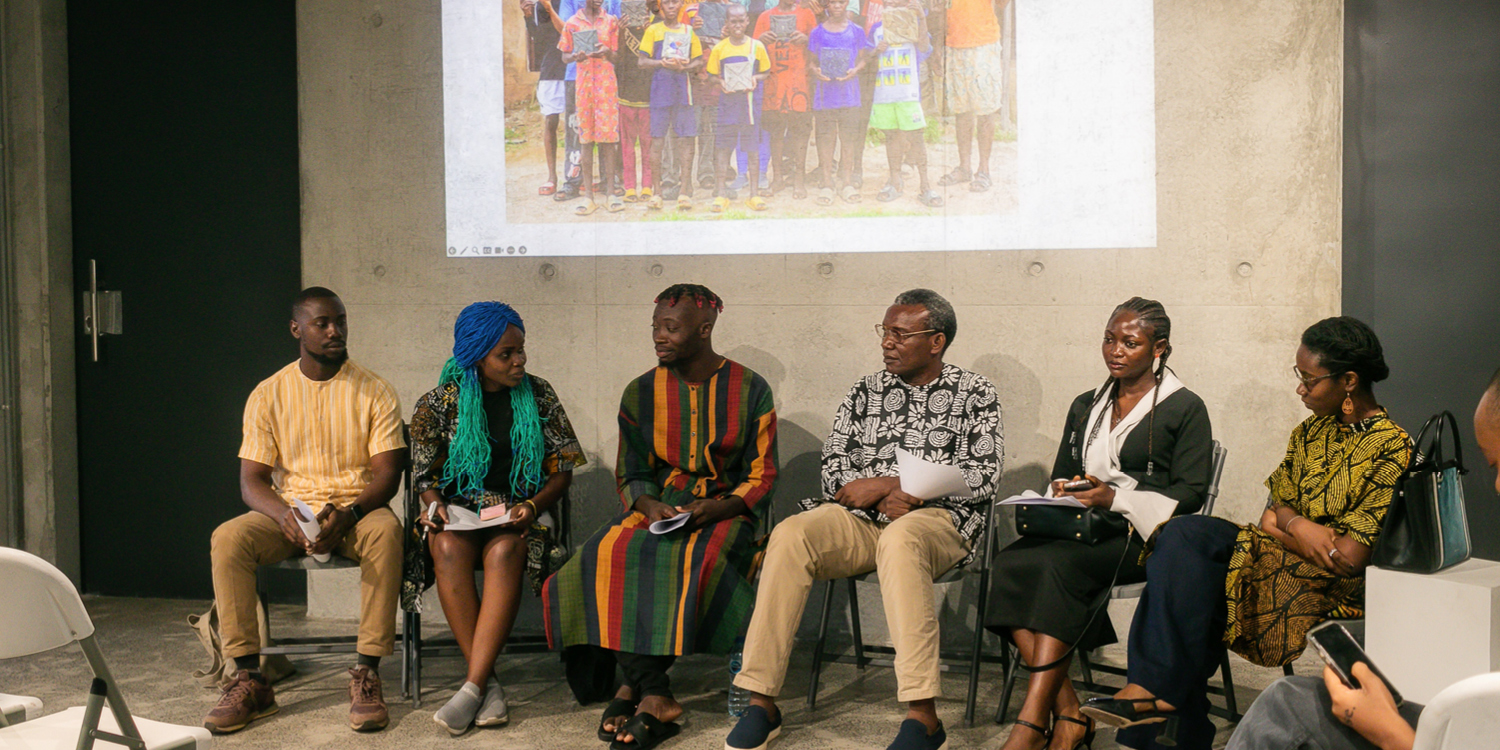
Panel Discussion at Katesi Kalange's METAmorphosis,
To conclude her residency, Katesi hosted METAmorphosis, a gathering at G.A.S. Lagos, where she and a panel of her collaborators shared their process and findings with our creative community here at the Foundation. The panel included environmental advocate Peter D. Abayomi, ceramicists Ato Arinze and Afeez Azeez, a chemical engineer at BASF West Africa Boluwatito Aiyepola and Rafiat Kikelomo Bashiru, who leads operations at Wecyclers.
ABOUT KATESI KALANGE
Katesi Jacqueline Kalange, is a process-focused visual artist from Uganda. A master’s degree holder in Art and Industrial Design from Kyambogo University, Kalange's work weaves together sculpture, architecture, research, installation and performance art. Drawing from African indigenous wisdom, she is fascinated by its historical role in nurturing harmonious coexistence among humans and other beings within shared ecosystems.
Her work has been shown in exhibitions such as Kla Art Festival 2021 in Uganda, Pink Flame exhibition at the village market, Kenya in 2022, Silent Invasions, Amasaka Gallery, Uganda in 2023, etc. She received the Prince Claus Mentorship Award in 2021, emerged as the second alternate in the inaugural El Anatsui Fellowship 2023, and was a participant in the inaugural Venice Architecture Biennale College 2023. She was a recipient of the Tilga Art Fund in 2023, and undertook a residency at G.A.S. Foundation as a result of the award.
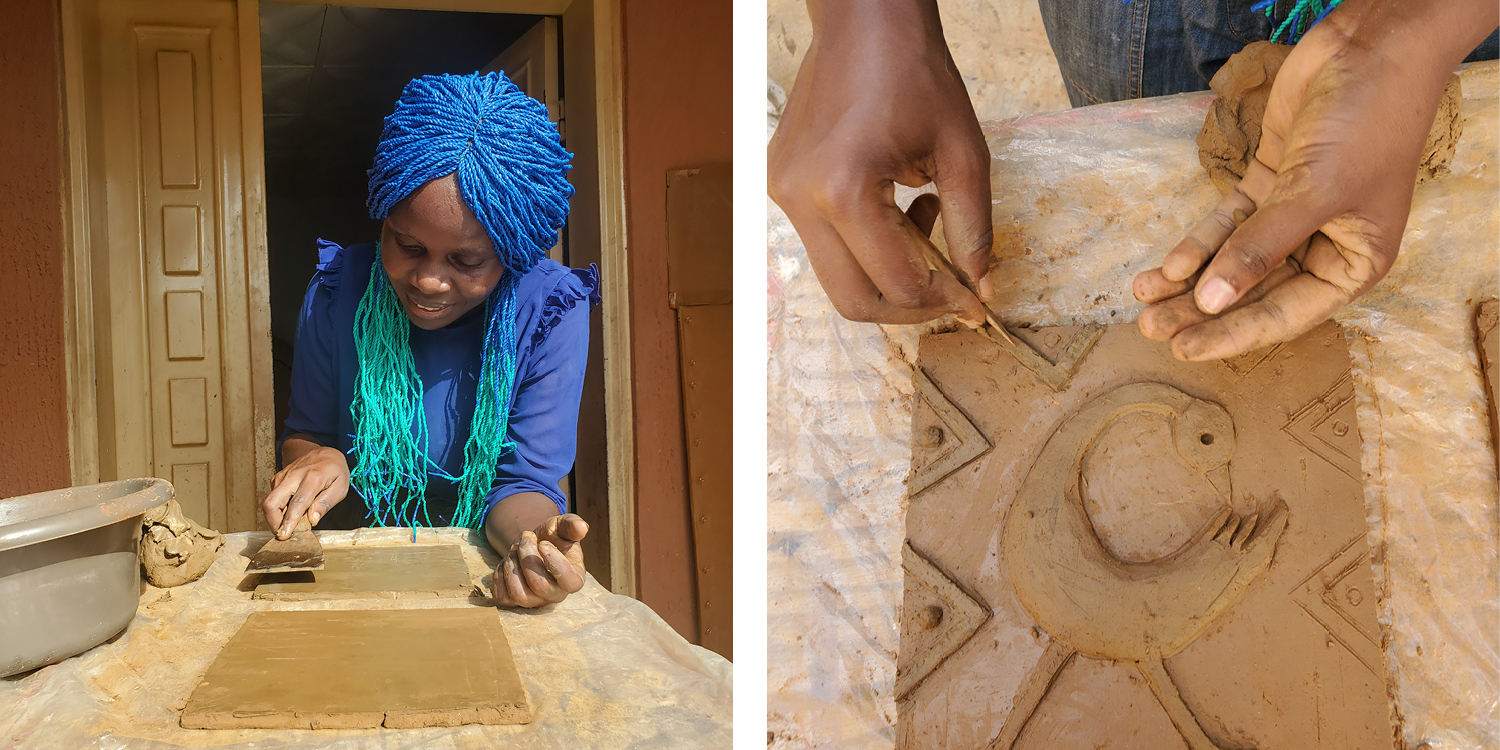
ABOUT TILGA ART FUND
Tilga Art Fund is an art-focused reiteration of the Tilga Scholarship, a philanthropic initiative of Wally Bakare, which acts as a vehicle to provide opportunities for minority students to complete their collegiate education. An avid collector of arts from the African continent and the diaspora, Wally created The Tilga Art Fund to support and foster criticality, broaden artistic practice and engage new and exciting modes of art-making among young contemporary African artists.
In May 2023 Yinka Shonibare Foundation and Guest Artists Space Foundation announced a new collaborative open call with Tilga Art Fund, a philanthropic initiative launched by our residency Patron, Wally Bakare, to foster criticality, broaden artistic practice and engage new and exciting modes of art-making among young contemporary African artists. The 2023 edition of the prize was targeted at young artists across all creative disciplines working and living in Uganda, or of Ugandan descent.
